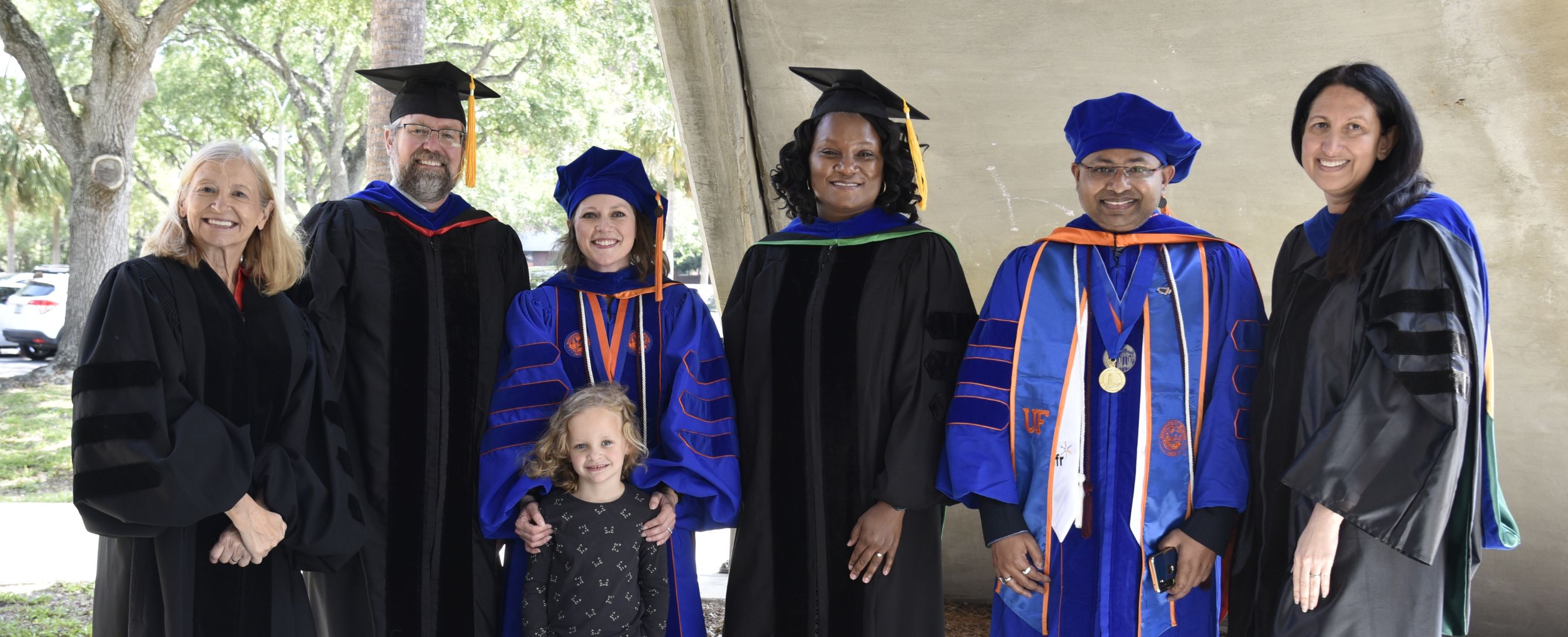PH.D. IN YOUTH DEVELOPMENT AND FAMILY SCIENCES (YDFS)
Earn your Ph.D from one of the top 10 public universities in the United States. Our YDFS program will prepare you to conduct high-impact research addressing the problems, issues, and needs relevant to developing youth, their families, and the communities in which they live. This Ph.D is appropriate whether you plan to pursue a tenure-track faculty position or a career in the government, nonprofit, or private sectors.
Students receive advanced training in human growth and development, interpersonal and family processes, and the communities that influence the well-being of children, adolescents, and emerging adults. Specific emphasis is placed on examining prevention and promotion programs as contexts for positive growth and development, especially among vulnerable populations.
Taught by exceptional faculty, the program curriculum offers a robust foundation built on advanced research methods and techniques, youth and family theories, and electives that allow you to pursue your own specialty areas.
-
Financial Support
The department offers funding for doctoral students in the form of graduate assistantships (includes a part-time salary, benefits, and a tuition waiver), and conference travel support. Graduate students are responsible for student fees, textbooks, and living expenses.
Graduate assistantships are opportunities for experience and financial support that are awarded to the most competitive applicants. They may be teaching, research, or extension appointments that are awarded annually, usually funded for four years, and renewed based on funding and acceptable student evaluations. Applicants are generally notified of awards shortly after the admissions decisions are made; however, there may be some delays due to approval of the budget.
Students receiving teaching assistantships will be assigned an undergraduate course to teach or assist a faculty member with related instructional duties. Research assistantships may be assigned to grant-funded projects or to assist faculty with their particular area of research.
To be considered for a Graduate Assistantship, interested individuals must complete the application for admission to the University of Florida and submit ALL application materials by the Priority Deadline listed. A letter of application and resume should be submitted to:
Crystal Tisby, Coordinator of Academic Programs, ctisby@ufl.edu
Additionally, students can apply for other funding, including minority fellowships through the UF Graduate School See http://graduateschool.ufl.edu/prospective-students/funding/
Assistantship information is also maintained by the College of Education at http://education.ufl.edu/student-personnel/graduate-assistantships/
-
Curriculum
You can view the Ph.D. Curriculum Requirements and Course Descriptions here: Ph.D. Requirements
-
Application Deadline
-
The priority deadline for your application and all supporting documents is December, 15. Applicants who apply by the December 15 deadline will be given priority in funding decisions for graduate assistantships. A second wave of applications will be accepted from December 16 to March 15.
Note that in order to meet the application deadline, your complete application and all supporting documents must be received by the due date.
-
-
How to Apply
Our detailed application checklist can be accessed here:
-
FAQs
1. What are the requirements for admission?
To be admitted, students must have a minimum undergraduate GPA of 3.0, and a minimum graduate GPA of at least 3.3.
Prior completion of a master’s degree is desirable, preferably in a field of study that provides the student with a solid grounding in the social sciences. Students with a Bachelor’s degree may apply to the Ph.D. program and be admitted; however, they must complete the Master’s degree along the way before they complete the requirements for the Ph.D. We will also consider students with degrees in related fields or post-baccalaureate professional degrees.
2. How long does it usually take to complete the degree program?
The actual program length will vary based on the needs, resources, and proficiency of the student. For students entering with a master’s degree (or equivalent) and are able to transfer credits into the program, program completion will generally take about four years. For students entering with a bachelor’s degree, the program may take up to five years to complete. Bachelor students must complete the master’s degree along the way.
3. How do I know what areas faculty are interested in?
Our program works on a faculty mentor model and it is expected that students will identify one or more preferred faculty mentors in their statement of purpose. The faculty webpage has current curriculum vitae, which outline the academic background, publications, and areas of specialization of faculty members. Before applying to the doctoral program, you should become familiar with the research interests of our faculty, and applicants are encouraged to discuss their research interests with specific faculty members.
4. How long does it usually take to complete the degree program?
For students entering with a master’s degree (or equivalent) and are able to transfer credits into the program, program completion will generally take about three years. For students entering with a bachelor’s degree, the program may take up to four to five years to complete. As noted, bachelor students must complete the master’s degree along the way. The actual program length will vary based on the needs, resources, and proficiency of the student.
5. What careers will a Ph.D in YDFS prepare me for?
The YDFS doctoral program is designed to teach students to be future faculty members, scholars, and researchers in fields including human development and family studies, family and consumer sciences, and child and family development.
6. How much does the program cost?
Detailed tuition and fee information can be accessed here: http://www.fa.ufl.edu/bursar/current-tuition-and-fees/#credit
7. When do you typically notify students about admissions decisions? When are student decisions due?
Applicants who submit priority applications should have an admissions decision by early February. Priority student decisions accepting or declining offers are due no later than April 15th. Those who submit by the March deadline should expect a decision in early April.
8. When are campus visits likely to take place?
If you are interested in setting up a campus visit, please let Gregg Henderschiedt know (ghenderschiedt@ufl.edu). Most campus visits take place in the early spring.
- Doctoral Program Forms and Resources
- Contact Us


